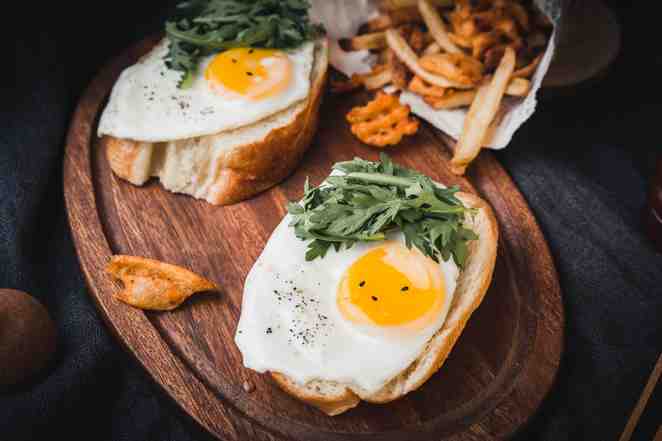
Cholesterol free - So what?
Since the introduction of the predictive correlations between blood cholesterol levels and coronary heat disease by Dr. Ancel Keys in the 1950's, the words "High Cholesterol" have become one of the most feared phrases in the average annual medical check-up.
"Reduce the cholesterol in your diet"; "reduce the fat in your diet"!! Each week thousands of physicians and health practitioners give this advice to millions of people.
This advice has become ritualistic in tone and the North American paradigm of health care has most people regarding it as very sage advice.
When Dr. Keys (Monsieur Cholesterol as he was dubbed by his University of Minnesota colleagues) published his correlative information along with the high saturated fat link, it lead to the development on an entire anti-cholesterol industry fueled initially by the corn oil and corn oil margarine industries.
The other branches of the vegetable oil industry later joined in and the food manufacturers took full advantage of the negative cholesterol / heart disease links.
The oversimplified explanation has been 'if high blood cholesterol is linked to increased heart disease risk then we should logically refrain from eating cholesterol'.
Today one cannot cruise the grocery aisle nor peruse the food advertising literature without seeing some reference to "No Cholesterol" or "Low Cholesterol" in the text or labels. The market place has become "saturated" (pardon the pun) with information about No Cholesterol even to the point of including it on food labels that could never contain cholesterol in the first place. Cholesterol is a fatty substance produced only by animals and cannot exist in food of plant origin.
With time we have learned about "bad cholesterol" known as low density (LDL) cholesterol and "good cholesterol" known as high density (HDL) and that we can do some things like increase exercise to create a more favorable ratio of these two components.
We also know that when LDL is oxidized it becomes most toxic, which lead to the understanding that anti-oxidant nutrients like vitamins C and E, beta carotene and lycopene may provide some protection.
If our diet is adequate in essential fatty acids, (cold pressed oils like flax seed, lecithin, GLA from borage seed, nuts and seeds) we metabolize most of the saturated fats and neutralize their negative affects.
Finally, the very toxic "Trans Fatty Acids" resulting from the over processing of oils and the exposure of oils to air which leads to rancidity can be more dangerous than any amount of saturated fat or cholesterol consumption.
Dr. Marcia Stefanick of the Stanford School of Medicine published a recent study with the conclusion "low fat diets as recommended by the National Cholesterol Education Program (NCEP) have met with disappointing results in the quest to control cholesterol".
Dr. Ancel Keys was recently quoted in "Eating Light" magazine "... there's no connection whatsoever between cholesterol in food and cholesterol in blood. None. And we've known that all along."
By the way, the original research which damned the egg in the cholesterol relationship was conducted using dehydrated egg yolk powder, not real eggs and it was financed by the Cereal Institute of America" according to both Dr. Robert Atkins and Louise-Ann Gittleman, two best selling nutrition authors. Dr. Keys is also credited with developing the famous K ration (a dehydrated egg concoction) for the American second world war soldiers.
"Go Ahead And Have An Egg" was the newspaper headline generated by the publishing of a study from the University of Washington in 1995 where they concluded that "eating an egg raised cholesterol only slightly, if at all, for most people".
The Journal of the American Medical Association in 1997 published a paper demonstrating that restricting the fat in the diet to less than 26% showed no additional advantage in the effects of lowering cholesterol. (If you like the 40-30-30 eating plans, you'll love this)
Everyone of the authors of the higher protein and fat - lower carbohydrate diets - report improved cholesterol profiles in their reported experiences.
It is now understood that uncontrolled insulin levels due to high carbohydrates intake will cause the liver to make more cholesterol - far more than you could ever eat.
What you need to know
Blood cholesterol is not a perfect predictor of heart disease. Eat your anti-oxidants (vitamins C & E, beta carotene and lycopene) to protect from oxidized LDL cholesterol.
Eat your essential fatty acids (nuts, seeds, cold press flaxseed oil, Borage Oil GLA, Lecithin, high quality fish oil) to protect yourself from the potential damage of excess saturated fat intake.
Avoid trans fatty acids from cheap oils, deep fried grease and margarine of any kind.
Eat lots of soluble fiber to help reduce LDL and to protect the digestive tract in general.
And, "Go Ahead and have an egg or two or six".
Previous in Nutrition: Celebration Eating
Next in Nutrition: Daily Water